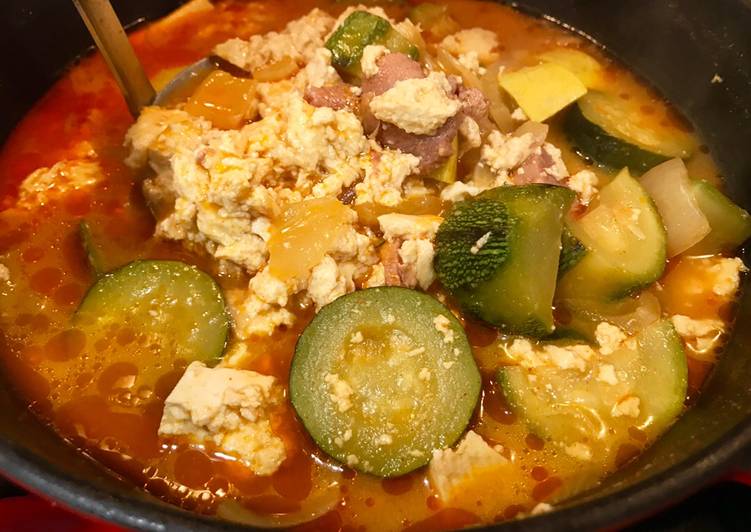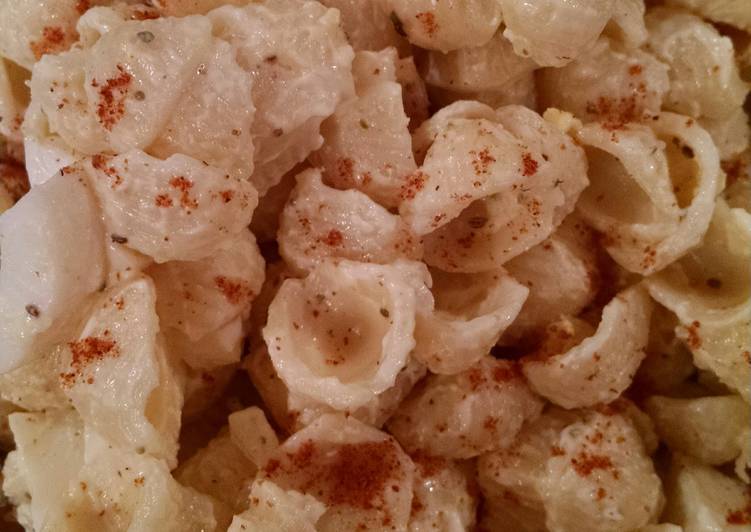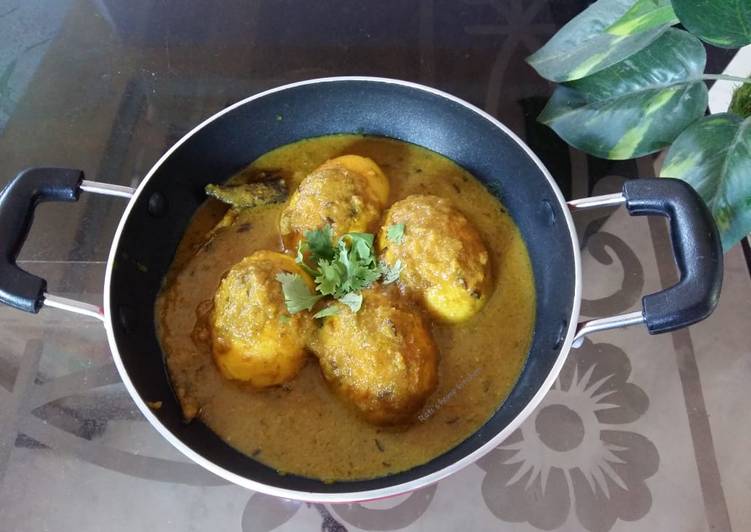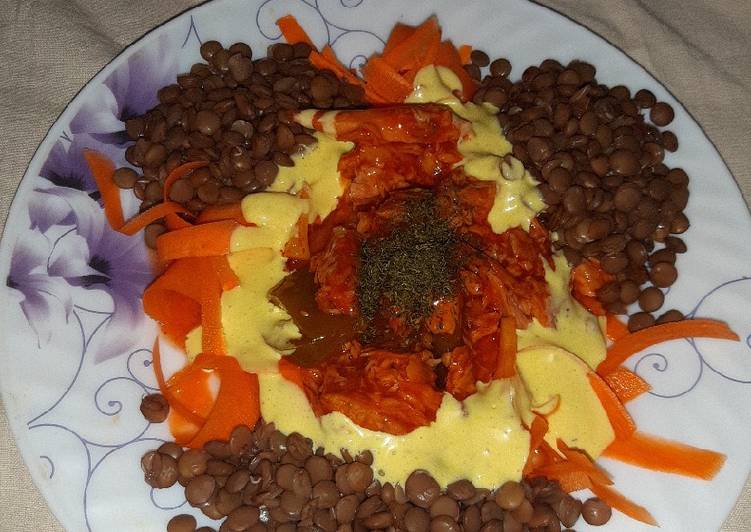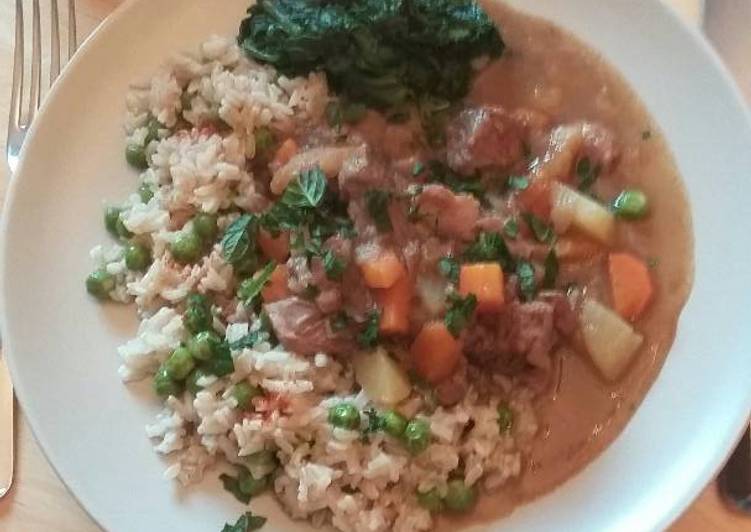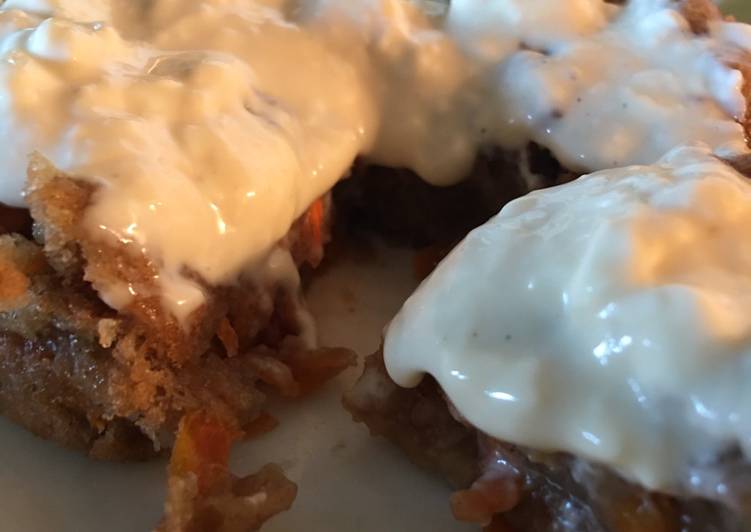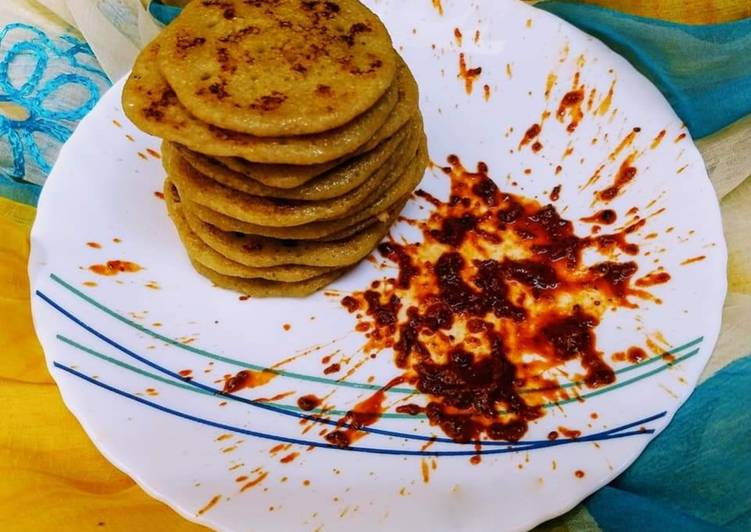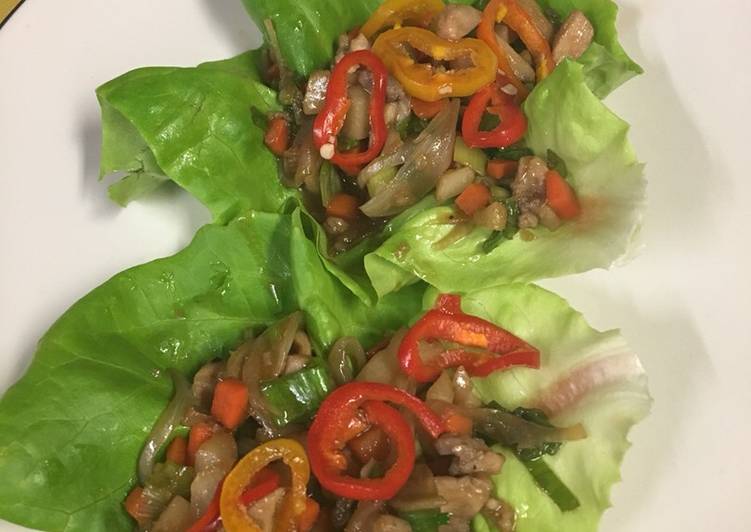Hey everyone, it’s Clark, I hope you are having an amazing day. Today I will show you how to make a special dish, Spicy Hobak Jjigae (Korean Squash Stew) with Pork & Tofu. It is one of my favourite food recipe, this time i’am gonna make it a little bit tasty. This is gonna really delicious.
Spicy Hobak Jjigae (Korean Squash Stew) with Pork & Tofu Recipe.
You can have Spicy Hobak Jjigae (Korean Squash Stew) with Pork & Tofu using 9 ingredients and 5 steps. Here is how you cook it.
Ingredients of Spicy Hobak Jjigae (Korean Squash Stew) with Pork & Tofu
- It’s 1/2 of onion, diced.
- You need 1-2 of jalapeños, cut into 1/8" thick slices.
- Make ready 2-4 of garlic cloves peeled and smashed (or chopped).
- Prepare 1/2 pound of pork shoulder, thinly sliced.
- It’s 1/4 cup of dwenjang (Korean soybean paste) OR miso (which is the Japanese version).
- Prepare 1/4 cup of gochujang (Korean chili paste).
- Prepare 4 cups of water.
- You need 4 cups of calabacita squash or zucchini, cut into 1/2" thick slices (about 2 to 3 medium squashes).
- Prepare 1 (14 oz.) of package tofu (can be any firmness).
Spicy Hobak Jjigae (Korean Squash Stew) with Pork & Tofu instructions
- Put all ingredients except squash and tofu in a pot, cover, turn the heat to medium high, and cook for 15 minutes..
- Give the jjigae a few good stirs. You'll see the jjigae change color as the dwenjang and gochujang dissolve into the broth. Let the jjigae continue cooking uncovered for 2 to 3 minutes until it comes to a boil..
- Add squash, give it a few good stirs, and cook another 15 minutes covered..
- Crumble tofu into the jjigae. (This is not typical - usually it's cut into cubes or slices - but I like it this way because the tofu picks up more flavor from the broth.) Cover and cook another 10 minutes.
Don't worry that the broth is constantly boiling rather than simmering. Jjigae gets its well developed pungency from this constant application of higher heat and the resulting compounding, melding, and reduction of flavors..
- At this point, give everything another good stir and see if you need to adjust the seasoning. If it tastes fine, you're done.
If a little too salty, add a touch of water. If you want more saltiness, you can add a little more dwenjang and/or gochujang, remembering that the gochujang is much hotter (as in spicy) than the dwenjang.
If you do adjust the seasoning, let it boil another 4 or 5 minutes to let the new level of seasoning meld.
That's it. Enjoy!.
